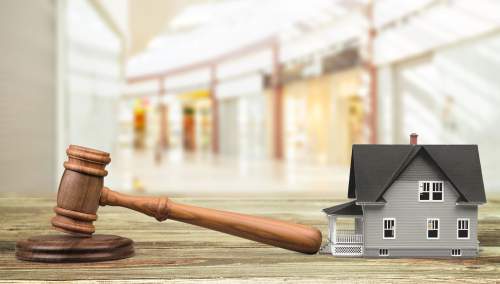
Can Bankruptcy Protect My House?
Worries about losing your home are incredibly unsettling. Many people who are concerned that they might lose their house due to financial duress look for alternatives so that they can stay in their homes. One viable alternative for many homeowners is filing a Chapter 7 or a Chapter 13 bankruptcy. Whether this option is viable in your individual situation depends on multiple factors. If you are in danger of losing your house or fear that you may soon be, don’t delay. Schedule a consultation with a knowledgeable North Carolina bankruptcy attorney today.
Bankruptcy Can Protect Your Home Depending on Specific Factors
Filing bankruptcy is not an automatic guaranty that your home will be protected. You will need to discuss the following with your North Carolina bankruptcy lawyer if one of your goals is to keep your home:
- If you should file a Chapter 7 or a Chapter 13 bankruptcy
- How much equity you have in your home
- How the North Carolina homestead exemption applies to your situation
- If you can continue to pay your mortgage in the near future
Keeping Your Home in a Chapter 7 Bankruptcy
When a Chapter 7 bankruptcy is filed, the trustee sells your nonexempt assets and pays your creditors with the proceeds. Under federal bankruptcy laws, you are afforded some exemptions, meaning that the trustee cannot sell it, and you get to keep it. The homestead exemption applies to the equity you have in your home. In North Carolina, it protects as much as $35,000 in equity of any real property. This exemption is doubled if married spouses are filing a joint bankruptcy petition. If the debtor is age 65 or older, or the property is held as tenants by the entirety or joint tenants with the right of survivorship, and the debtor’s spouse has died, the exemption is $60,000.
You will need to calculate how much equity you have in your home. Start with the current market value of your home and subtract all of your mortgages and liens. The sum is your current equity. Keep in mind that a Chapter 7 bankruptcy does not provide a way for you to make up your mortgage arrears. You will need to work something out with your lender to pay the arrears, such as a repayment plan or a modification, in order to keep your home in this type of bankruptcy.
Repayment Plans in Chapter 13 Bankruptcy
Chapter 13 bankruptcy allows you to keep your property and pay your creditors over time. Since you get to keep your property, your home is protected. If you are behind on your mortgage, the arrears can be made up through a Chapter 13 repayment plan. Your arrears and the amounts of other debts you will be required to pay will be combined and spread out into a payment plan of three to five years. As long as you stay current on your mortgage and complete the repayment plan, you can keep your home. You must be able to make enough money to stay current on all your bills and pay your Chapter 13 payments each month.
Afraid of Losing Your Home? A North Carolina Bankruptcy Attorney Can Help
To find out how you can protect your home, get your bankruptcy started with King Law Firm. Call (855) 206-0052 or use our convenient online contact form. We offer free no-obligation consultations and can meet with you at one of our several office locations or in a location that is convenient for you.

